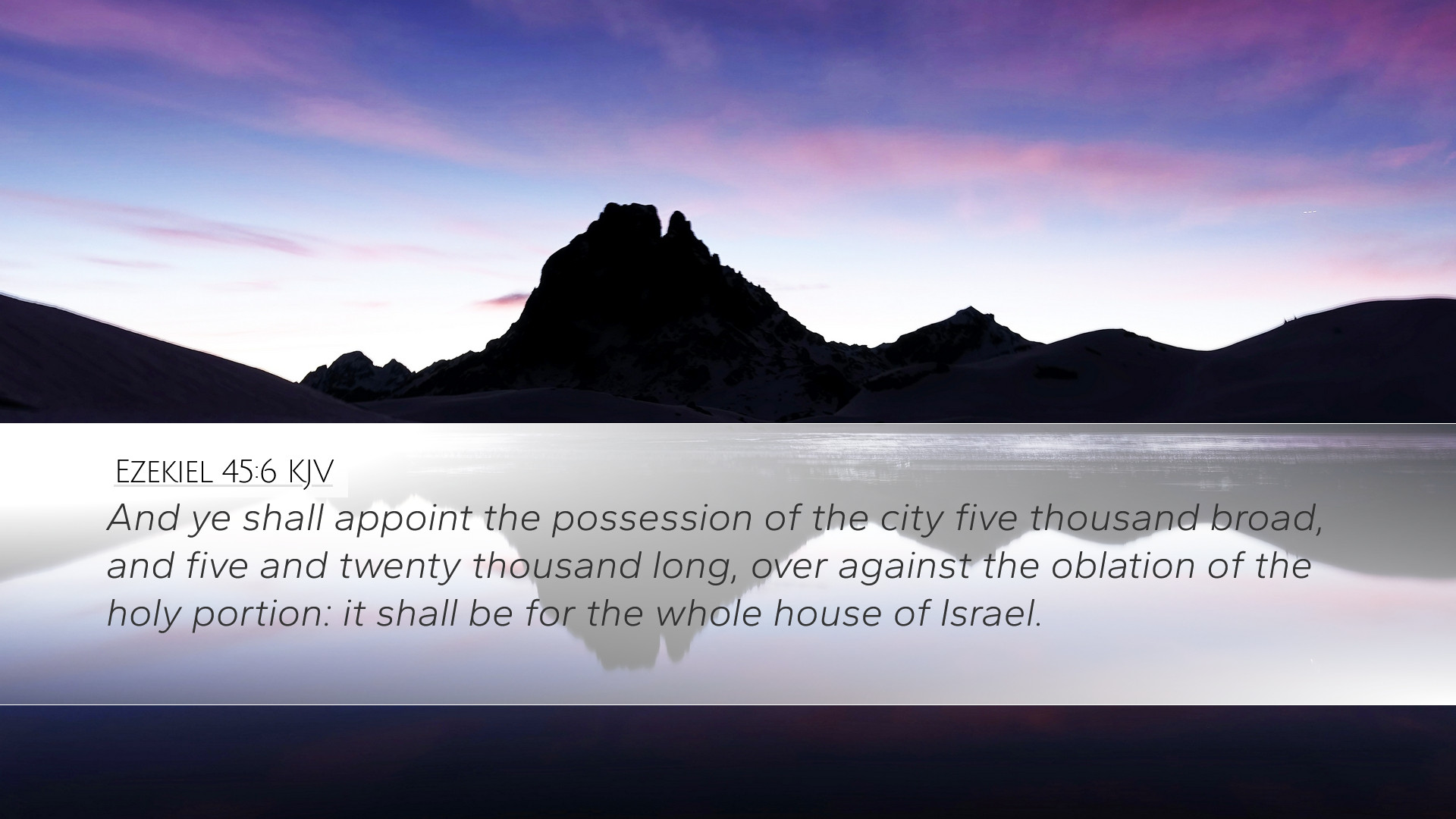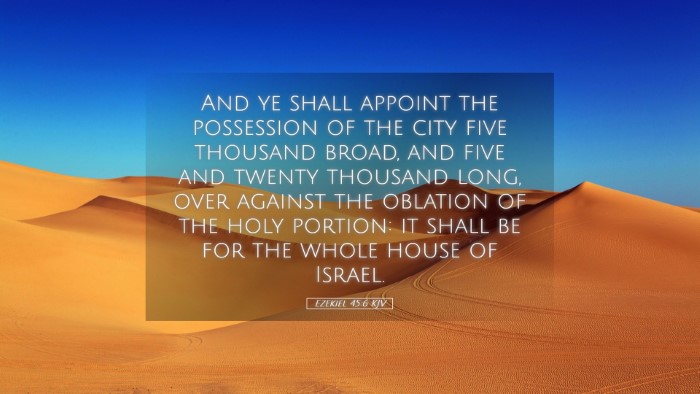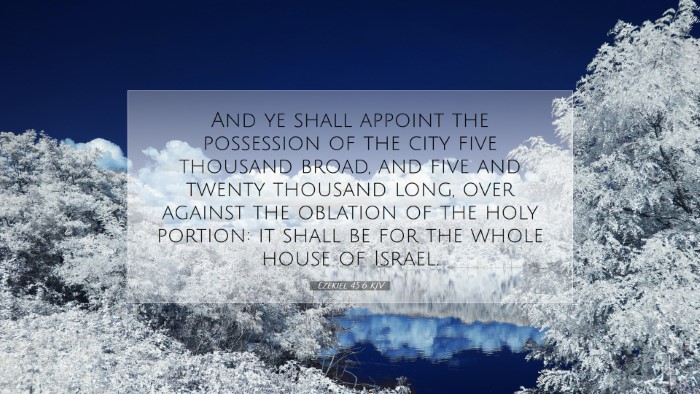Commentary on Ezekiel 45:6
Ezekiel 45:6: "And ye shall appoint out of your own the first fruits of your dough, a heave offering unto the Lord."
Introduction
This verse is a part of Ezekiel's vision concerning the future Temple and the restoration of Israel. In this context, the prophet Ezekiel lays out the regulations concerning offerings, land distribution, and worship. This commentary draws insights from esteemed public domain commentators, emphasizing key spiritual and theological themes relevant to both ancient Israel and contemporary readers.
The Significance of First Fruits
Ezekiel's directive regarding the first fruits underscores the importance of acknowledging God's providence and blessings. Matthew Henry notes that the first fruits represent a dedication of the first of the harvest, symbolizing gratitude and recognition of God's generosity.
- Gratitude: This act of offering was a way to thank God for His provision.
- Trust: Offering the first fruits was an expression of faith, trusting God for the rest of the harvest.
- Holiness: The first fruits were considered holy, thereby sanctifying the entire harvest.
Implications for Spiritual Leadership
Albert Barnes highlights that leaders in Israel are called to be examples in their worship and offerings. This directive to the pious community serves as a significant reminder of their covenant relationship with God. The leaders were to ensure that the community adheres to these principles:
- Modeling Generosity: Leaders should demonstrate a lifestyle of giving and reliance on God.
- Encouraging Community Participation: The requirement of offering first fruits encourages communal responsibility in worship.
- Fostering Accountability: This practice creates a sense of accountability towards God and one another.
Theological Interpretations
Adam Clarke comments on the theological implications of the heave offering, noting that such offerings were not merely ceremonial but carried profound spiritual significance. The heave offering signified:
- Separation: These offerings set apart contributors as belonging to God.
- Propitiation: The offerings were extricated as a means to seek favor and reconciliation with God.
- Participation: Each offering represented a community’s recognition of God’s sovereignty and provision.
Practical Applications for Today
In modern contexts, this verse holds relevance in several areas of Christian life and practice:
- Stewardship: Just as the Israelites were to give of their first fruits, Christians are called to prioritize God in their financial and personal decisions.
- Worship: The offering becomes an act of worship, where believers actively engage in recognizing God’s role as the provider.
- Community Engagement: Just as offerings strengthen communal ties, churches today should find ways to encourage collective worship and participation.
Conclusion
The directive in Ezekiel 45:6 regarding the first fruits serves as a cornerstone for understanding the relationship between God and His people. The insights from Henry, Barnes, and Clarke demonstrate the importance of gratitude, leadership in generosity, and theological significance behind the practices of worship. For modern readers, these timeless principles offer practical ways to engage with God and foster community in faith.
As we reflect on Ezekiel 45:6, let us commit to recognizing God’s sovereignty in our lives, prioritizing Him in our offerings, and encouraging others in their walk of faith.


